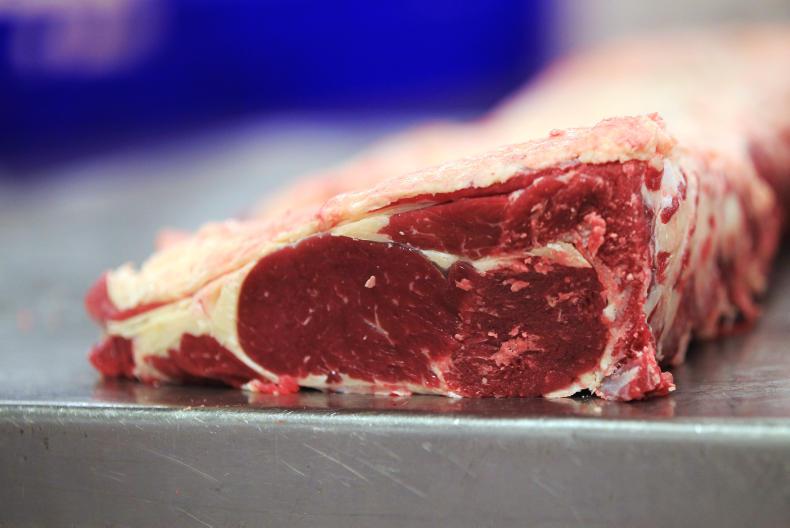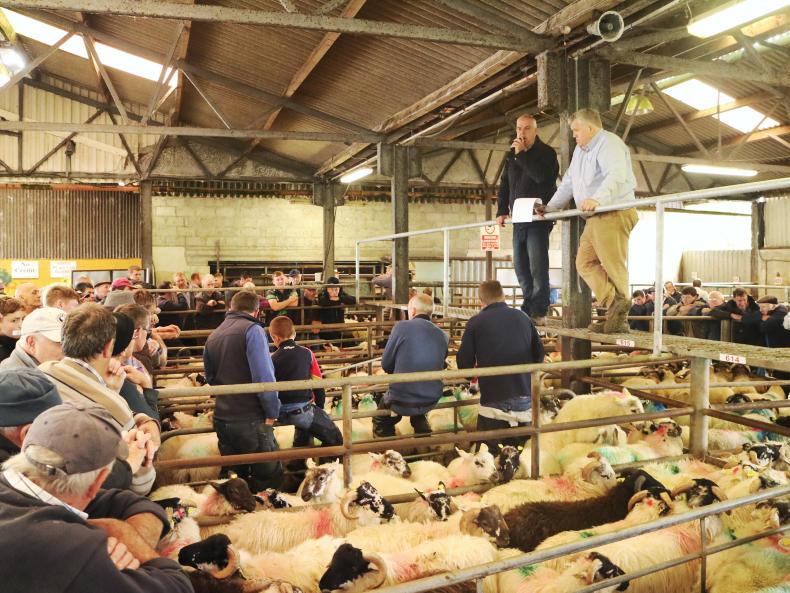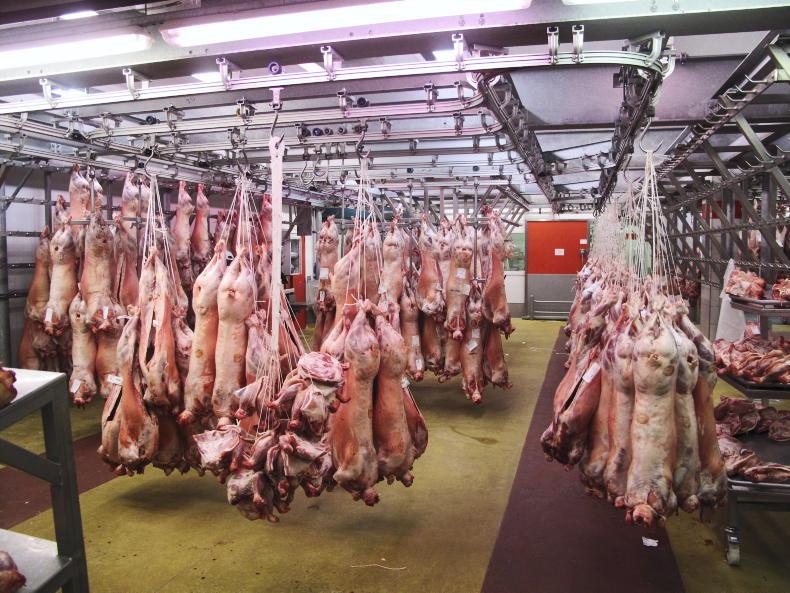The lamb trade remains more optimistic than previous weeks, with two plants raising their base quotes.
Kildare Chilling has increased its base quote by 10c/kg to €4.65/kg, along with a potential top-up of 10c/kg for quality assured (QA) lambs. Kepak Athleague’s increase of 5c/kg puts it on a similar footing and only separated by a 5c/kg QA bonus.
Dawn Ballyhaunis and the two ICM plants are quoting a base of €4.50/kg, while Moyvalley and Ballon remain on their all-in quote of €4.60/kg.
The movement in quotes has positives for producer groups working on an average base quote plus bonus pricing mechanism. This is witnessing top prices approaching €4.80/kg and in cases surpassing it, with the best price reported of €4.85/kg.
Prices paid to individual large-scale suppliers are also similar at €4.75/kg to €4.80/kg, while a high percentage of lambs are trading from mid-week for €4.70/kg to €4.75/kg.
There are still plants purchasing sheep at €4.65/kg, but with factories keen to source lambs there are buyers willing to compete for lambs.
An improving mart trade is also a possible alternative sales avenue for farmers with lower negotiating power who are struggling to close deals.
The northern trade is also showing more signs of life. Base quotes in some plants have lifted 5p/kg and are ranging from £3.75/kg to £3.80/kg.
Sterling strengthened on Wednesday afternoon, rising close to 1p to 87.4p to the euro. This puts the above price range at the equivalent of €4.29/kg to €4.35/kg or a price of €4.52/kg to €4.58/kg when VAT is factored into the calculation at 5.4%.
Sellers competing at the higher end of the market are securing 5p/kg higher, with the mart trade continuing to be boosted by agents purchasing sheep to export south for direct slaughter in southern plants.
Last week’s sheep kill rebounded from processing disruptions in the previous week, increasing 10,626 head to 65,057, while the lift in prices also helped to entice more lambs forward. The higher kill also included 2,392 extra ewes and rams, bringing the total to 11,456.
IFA sheep chair John Lynskey is predicting lamb supplies to tighten significantly in the coming months.
“A lot of hill sheep farmers have fed lambs themselves this year and are moving them directly to slaughter, with farmers moving lambs earlier and lighter. All of this indicates that supplies could be tighter going forward and finished lamb supplies could be in much shorter supply in early 2018.”
He is also calling on factories to increase carcase weights to 23kg in light of higher production costs faced this year.
Sheep prices: livelier trade in Tullow Mart
Sheep kill sees 200,000 extra animals processed to date
The lamb trade remains more optimistic than previous weeks, with two plants raising their base quotes.
Kildare Chilling has increased its base quote by 10c/kg to €4.65/kg, along with a potential top-up of 10c/kg for quality assured (QA) lambs. Kepak Athleague’s increase of 5c/kg puts it on a similar footing and only separated by a 5c/kg QA bonus.
Dawn Ballyhaunis and the two ICM plants are quoting a base of €4.50/kg, while Moyvalley and Ballon remain on their all-in quote of €4.60/kg.
The movement in quotes has positives for producer groups working on an average base quote plus bonus pricing mechanism. This is witnessing top prices approaching €4.80/kg and in cases surpassing it, with the best price reported of €4.85/kg.
Prices paid to individual large-scale suppliers are also similar at €4.75/kg to €4.80/kg, while a high percentage of lambs are trading from mid-week for €4.70/kg to €4.75/kg.
There are still plants purchasing sheep at €4.65/kg, but with factories keen to source lambs there are buyers willing to compete for lambs.
An improving mart trade is also a possible alternative sales avenue for farmers with lower negotiating power who are struggling to close deals.
The northern trade is also showing more signs of life. Base quotes in some plants have lifted 5p/kg and are ranging from £3.75/kg to £3.80/kg.
Sterling strengthened on Wednesday afternoon, rising close to 1p to 87.4p to the euro. This puts the above price range at the equivalent of €4.29/kg to €4.35/kg or a price of €4.52/kg to €4.58/kg when VAT is factored into the calculation at 5.4%.
Sellers competing at the higher end of the market are securing 5p/kg higher, with the mart trade continuing to be boosted by agents purchasing sheep to export south for direct slaughter in southern plants.
Last week’s sheep kill rebounded from processing disruptions in the previous week, increasing 10,626 head to 65,057, while the lift in prices also helped to entice more lambs forward. The higher kill also included 2,392 extra ewes and rams, bringing the total to 11,456.
IFA sheep chair John Lynskey is predicting lamb supplies to tighten significantly in the coming months.
“A lot of hill sheep farmers have fed lambs themselves this year and are moving them directly to slaughter, with farmers moving lambs earlier and lighter. All of this indicates that supplies could be tighter going forward and finished lamb supplies could be in much shorter supply in early 2018.”
He is also calling on factories to increase carcase weights to 23kg in light of higher production costs faced this year.
Sheep prices: livelier trade in Tullow Mart
Sheep kill sees 200,000 extra animals processed to date









SHARING OPTIONS